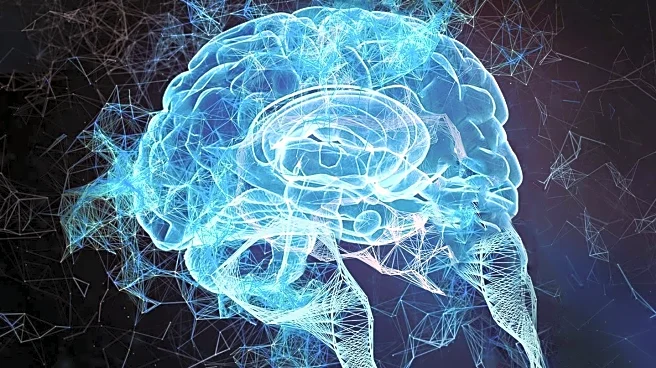What's Happening?
New research from the University of Utah has identified two groups of brain cells, known as microglia, that act as 'accelerators' and 'brakes' for anxiety in mice. These immune cells, rather than neurons, play a central role in determining anxiety levels.
The study found that one subset of microglia increases anxiety responses, while another reduces them. This discovery challenges the traditional focus on neurons in anxiety treatment and suggests that microglia could be a target for future therapies. The findings are published in Molecular Psychiatry.
Why It's Important?
The discovery of microglia's role in anxiety control represents a paradigm shift in understanding the biological roots of anxiety disorders. This research could lead to new therapeutic approaches that target microglia rather than neurons, potentially offering more effective treatments for anxiety disorders. As anxiety affects a significant portion of the population, these findings have the potential to impact a large number of individuals. By exploring the role of immune cells in mental health, scientists may develop innovative strategies to manage anxiety and other neuropsychiatric disorders.
What's Next?
Future research will likely focus on developing therapies that enhance the braking effect of microglia or reduce their accelerator activity. This could involve pharmacological or immunotherapeutic approaches targeting specific immune cell populations in the brain. While these treatments are still in the early stages of development, they hold promise for providing new options for patients with anxiety disorders. Continued research into the role of microglia in mental health could lead to significant advancements in the treatment of anxiety and other related conditions.














